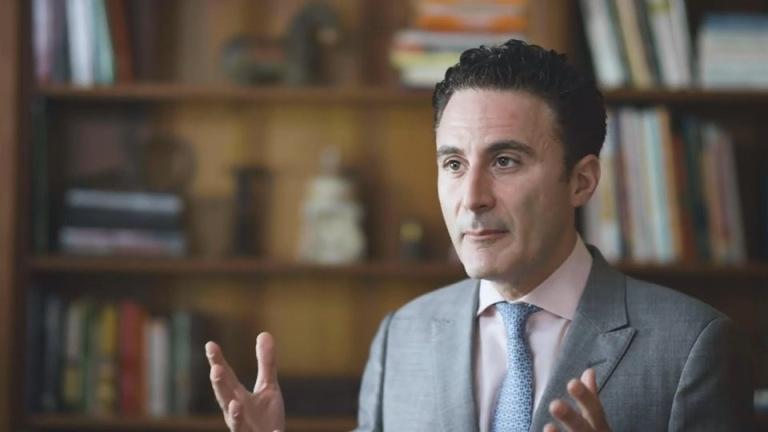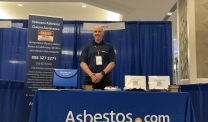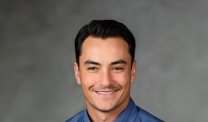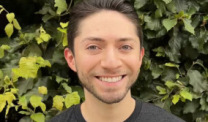The Mesothelioma Center Appears on Lifetime TV Series
AdvocacyWritten by Travis Rodgers | Edited By Amy Edel

Behind the Mystery is a recurring segment on the Lifetime network that highlights rare and genetic diseases. The most recent episode with hosts Montel Williams and Olga Villaverde focused on mesothelioma and featured The Mesothelioma Center at Asbestos.com, the nation’s most trusted mesothelioma resource.
Registered Nurse and Patient Advocate Karen Selby of The Mesothelioma Center, mesothelioma survivor Kim Madril and surgical oncologist Dr. Jacques Fontaine shared their expertise and unique perspectives on living with this rare malignant cancer. Only about 3,000 people are diagnosed with mesothelioma each year in the U.S.
Kim’s Shocking Diagnosis
Survivor Kim Madril, who worked as a nurse, discussed the initial symptoms that eventually led to her diagnosis. She shared that she experienced pain, which a number of potential health issues could have caused.
“A few years back I started having this intense pain in my left side and I thought this is probably a kidney stone,” Kim shared. “I went and had it evaluated and they couldn’t figure it out.”
A CAT scan showed a mass at the base of her left lung. Surgery to remove it revealed multiple masses. Based on her age and background, her doctors ruled out the possibility of mesothelioma.
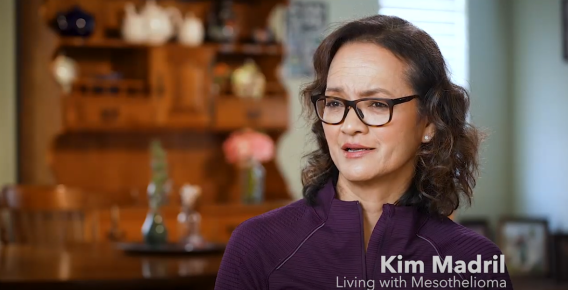
Kim recounted,“My pulmonologist said, ‘I know you don’t have mesothelioma, Kim. There’s no way you can have that. It’s so rare.’”
She didn’t fit the typical profile of a mesothelioma patient. While anyone can be diagnosed with the disease, most survivors are military veterans, construction workers, firefighters or industrial workers. Still without answers, Kim flew across the country to see a specialist for another opinion.
“I went and saw the doctor and he ran his own pathology. At the end of the day he sat me down and said, ‘Okay Kim, this is what we need to do to treat your mesothelioma,” Kim shared.
“I said to him, ‘Are you telling me that I have mesothelioma? And it just hit me that I was numb,” Kim shared. “I wasn’t a nurse at that moment. I was a patient.”
Kim’s asbestos exposure happened as a teenager in her junior and senior high school classrooms. She was exposed to asbestos in art, ceramics and automotive shop classes.
Help and Hope for Survivors
Patient Advocate and Registered Nurse Karen Selby explained The Mesothelioma Center’s role is to educate everyone about asbestos-related diseases. We assist mesothelioma patients through every step of their journey.
“We’re Patient Advocates who provide exclusive services to help mesothelioma patients and their caregivers and pretty much help them along the way from beginning to end,” said Karen. “We understand a diagnosis can be very scary. People feel very overwhelmed. We know what the next steps are, so connecting with us can really help them so they can focus on what matters most.”
Karen noted The Mesothelioma Center stands out with a specialized team of Patient Advocates. The on-staff team includes a medical doctor, an oncology nurse, an oncology navigator, a former U.S. Army captain and VA-certified claims agents and a legal advisor all with specific strengths to help all patients and their loved ones with their specific individual needs.
“What’s really great is we also have survivors and their caregivers that have gone through this journey being able to answer those questions that a newly diagnosed patient might have,” Karen said. “Having someone to talk to and answer your questions that has walked in your shoes and has experienced mesothelioma is so helpful, especially when this diagnosis can be so overwhelming.”
Karen added, “We’re here to answer questions, offer resources and provide services to help patients and loved ones after a diagnosis. It works like a concierge service.”
Importance of Specialized Mesothelioma Care
Thoracic Surgeon Jacques Fontaine, director of the Mesothelioma Research and Treatment Center at Moffitt Cancer Center explained how the disease develops. He noted that asbestos is the primary cause of mesothelioma.
“Little asbestos fibers are inhaled, and they go through our nose and our windpipe into the lung. And then they go to the periphery of the lung, called the pleura, which can start causing inflammation,” Fontaine explained. “Over many years, and I’m talking about 25 to 30 years, that inflammation very, very, rarely can turn into mesothelioma.”
As was the case with Kim Madril, Dr. Fontaine noted mesothelioma can be tricky to diagnose. He believes it’s important patients receive specialized care.
“Mesothelioma’s symptoms are quite difficult to differentiate from other more common diseases, and that’s why it’s so difficult to diagnose mesothelioma,” he noted. “In my opinion, I think that for patients who get diagnosed with mesothelioma, a rare cancer, it’s very important for them to seek care in a specialty cancer center.”
He explained, “Mesothelioma is a rare disease and the treatment is quite complex. It’s ever changing. It’s hard for physicians to stay up to date and acquire enough experience over time in treating this rare disease.”
Abundance of Available Resources
The Mesothelioma Center’s doctor match service helps patients connect with specialists across the country. We have more than 500 mesothelioma specialists in our network.
“We can assess the patient’s needs and be able to identify what specialist will be right for them and get them to that physician,” Karen said.
Mesothelioma treatment can be very expensive, making financial resources critical. The Mesothelioma Center can connect survivors and their families with the right lawyer to help them secure financial security.
“I was experiencing something that was affecting my life and I didn’t know where to go,” Kim shared. “I needed some help because even though I had nursing knowledge and I had the support of friends, I needed a little bit more than that.”
After reaching out to The Mesothelioma Center, Kim received a packet with nutrition tips, patient stories and medical information. Kim was also able to connect with a lawyer to help cover her treatment costs.
“They made suggestions regarding compensation they knew that was something I was struggling with,” she said. “I ended up with a firm that worked well for me and I really have them to thank for that.”
She added, “I had a contact person and they followed up with me several times just to see where I was at. I thought ‘Wow, not only is this informative, but they’re really kind.’ It was really significant for me in terms of my recovery. I felt really well taken care of. I felt they went above and beyond and it helped me.”


